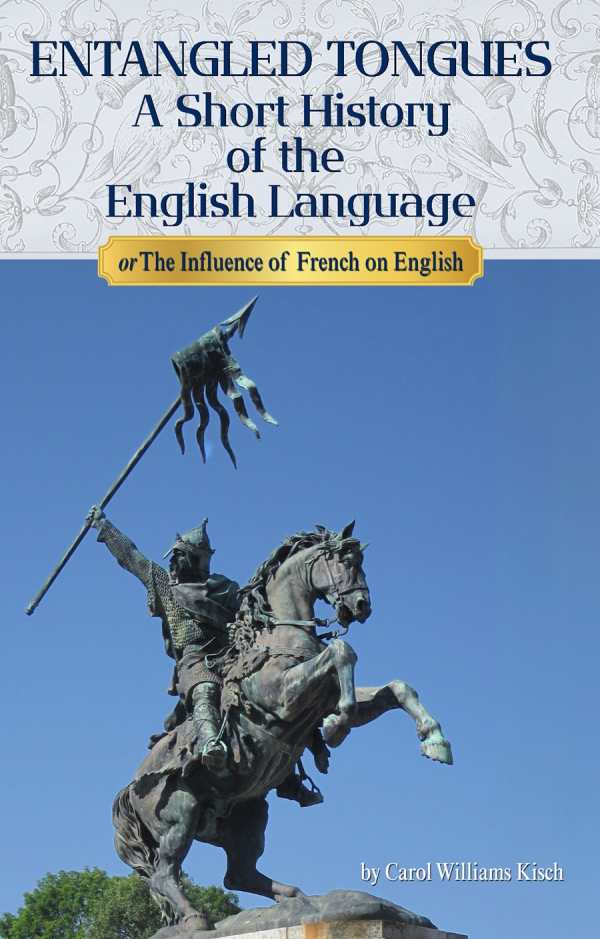
Entangled Tongues
A Short History of the English Language: The Influence of French on English
Blending history and linguistics inquiries, Entangled Tongues is a fun, lighthearted interrogation of the English language’s past.
Carol Williams Kisch’s delightful linguistic history book Entangled Tongues is about how English’s past is inextricable from that of the French language.
A glimpse into how English developed between 449 and the present, the book goes over the basics of Old English, Middle English, and Modern English, tackling multiple aspects of the language in modernity. It interrogates why and how English acquired its spelling, grammar, and pronunciations. Blending history and linguistics, it seeks the answers to these questions in the years following 499, especially from 1066 onward.
Indeed, the book emphasizes how crucial the Norman conquest was: It rendered French the official language in England, setting the stage for the loss of Old English. By the time English regained its linguistic supremacy in the country, many words from Old English were no longer remembered; French words and words with French origins took their place. The book also explores how and why Germanic words still abound despite the French influence, and which linguistic influence is more prevalent in moments of high emotion or pathos.
The prose is colloquial and straightforward, and the book’s examples are easy to follow. When explaining the difference between synthetic and analytic languages, for instance, the text delves into what makes a language fit one of these categories and explains how English went from the former to the latter: Losing its inflections and prepositions led to this transition, which is illustrated by manipulating a number of words and bending them to these rules.
The book includes a bevy of historical and personal anecdotes; they are often humorous, complementing the history sections with their lighthearted tones. For example, when talking about words having different meanings in Modern English than they did in Old and Middle English, Williams Kisch mentions being expected to recite a pledge of loyalty to Queen Elizabeth and the Commonwealth when she was a child. This pledge included the words “our awful Queen Elizabeth,” where “awful” meant awe-inspiring.
In keeping with the book’s educational yet entertaining tone, reproductions of paintings also abound, making the historical people and battles referenced accessible. The conclusion is somewhat redundant, though. It returns to each of the questions posed in the introduction, going over each to see whether they have been answered and sharing said answers.
A jovial linguistic history text, Entangled Tongues investigates the English language, answering frequently asked questions from English learners and teachers.
Reviewed by
Carolina Ciucci
Disclosure: This article is not an endorsement, but a review. The publisher of this book provided free copies of the book and paid a small fee to have their book reviewed by a professional reviewer. Foreword Reviews and Clarion Reviews make no guarantee that the publisher will receive a positive review. Foreword Magazine, Inc. is disclosing this in accordance with the Federal Trade Commission’s 16 CFR, Part 255.
